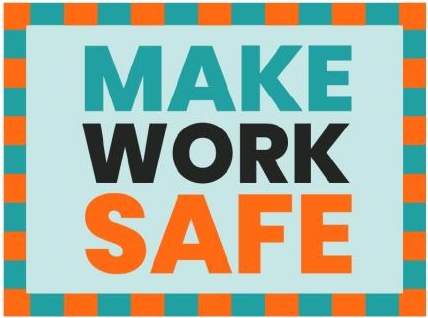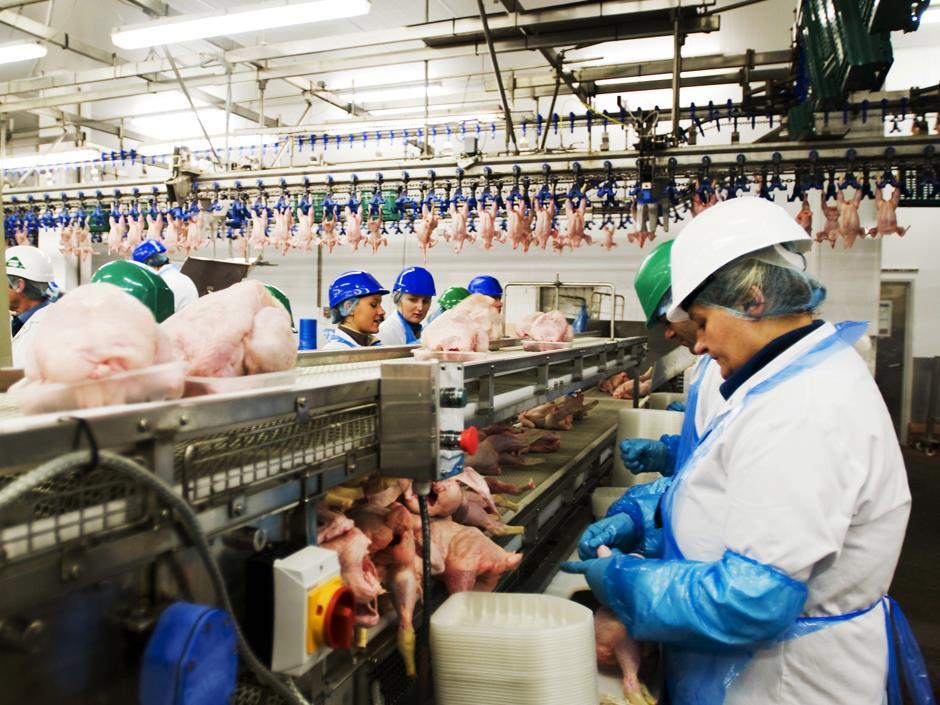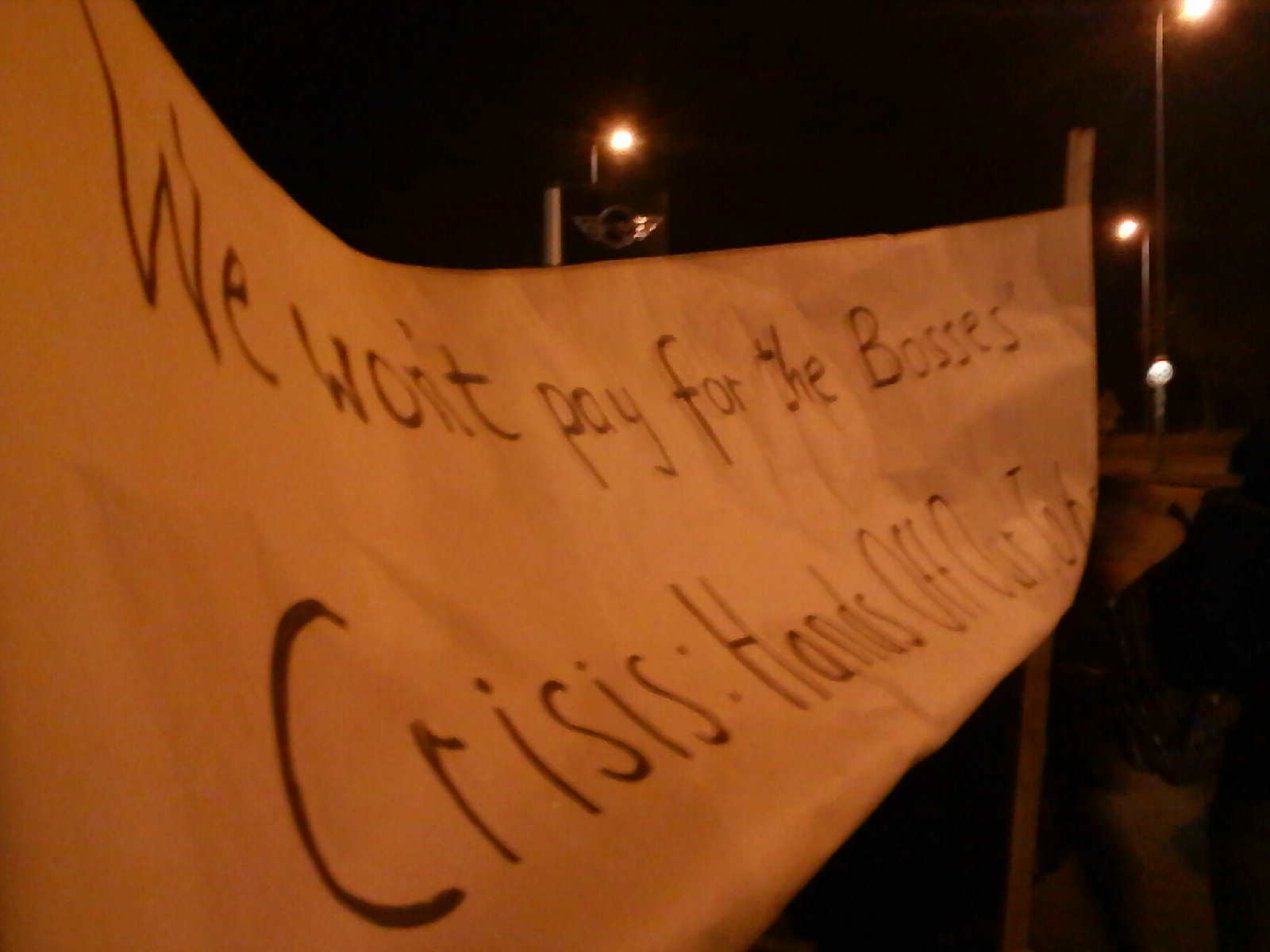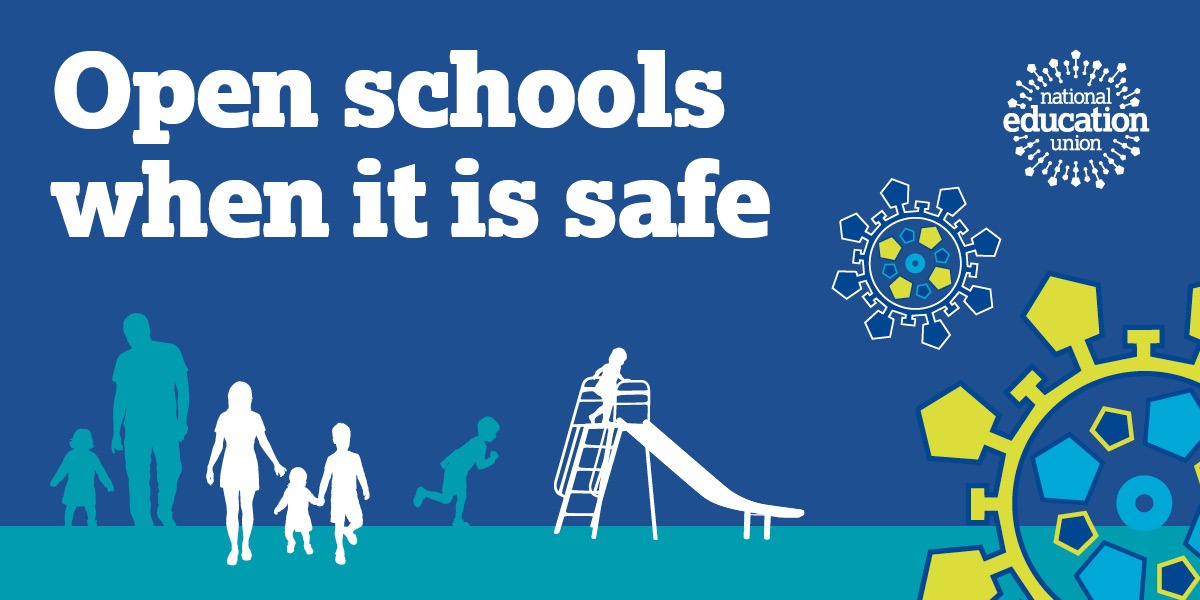
 |
||||
|---|---|---|---|---|
| Volume 50 Number 33, August 29, 2020 | ARCHIVE | HOME | JBCENTRE | SUBSCRIBE |
Workers' Forum Discussion:
Workers' Weekly Internet Edition: Article Index : ShareThis
Workers' Forum Discussion:
Workers Themselves Face the Challenge of Organising for Safety at WorkWorkers' Forum:
BMW Announces Hundreds of Agency Job Losses
NEU Raises Staff Safety Questions as Boris Johnson Urges Parents to Send Children Back to School
Workers' Forum Discussion:

During the pandemic, workers have been told to continue working or to prepare to return to work.
For many workers, whether in factories, offices, schools, or elsewhere, there has been little meaningful consideration for the risks that people are having to take with their wellbeing and that of their families. It is these missing considerations that need to be central.
In place of these considerations, there was, initially, a self-serving categorisation of who is "essential". It needs to be asked: essential for what and to whom? Essential work to protect people, essential work to defeat the pandemic? Or essential to maintain profits for the rich? The harsh reality, particularly now as the furlough scheme is closed, is that many face being cast into redundancy. In flagrant violation of the dignity of labour, the workers, the producers, the creators of wealth, are divided into those who can be utilised for making good for the self-serving interests of the rich - who are to return to work regardless of the dangers - and those who, under the present conditions, are deemed expendable.
The government, who serve the narrow interests of the rich, act contrary to the interests of the workers and the general interests of society. It is the key interest for society and the workers - defeating the pandemic and protecting people - that should take pride of place. However, it is not these interests that are foremost in the considerations of the ruling elite.
For example, during lockdown, care homes were devastated by and significantly contributed to the spread of the coronavirus. Yet the government showed little or no interest in protecting care homes and the elderly people who were in them, let alone the care workers who had to work without the necessary personal protective equipment.
The overall aim at present has to be the wellbeing of the people. Instead, the pandemic has seen the elite and the owners of the means of production utilising the lockdown to bring worsening conditions, tightening wages and generating unemployment through redundancy.

In June, food company 2 Sisters asked staff at chicken
processing plants in North Wales and Anglesey to self-isolate only after more
than 300 cases of coronavirus were confirmed. The number of cases was a shock
and has focused attention on the industry as a hot spot for
transmission.
Now, with the dangers of new spikes and a second wave, "hotspots" have appeared. These include Leicester, parts of the Black Country, Manchester, Oldham and Aberdeen. New hotspots have recently emerged in West Yorkshire, Blackburn and Pendle, and other cities are experiencing rises.
What is becoming clear is the concentration of poor working conditions in unsafe environments associated with these hotspots. Low-paid, often migrant, workers have been particularly affected. These are people on extremely low pay, less than minimum wage, or even unpaid, not union organised, and including unregistered workers, often doing multiple jobs or "gigs".
Workers have the right to safe working conditions, a secure livelihood and a claim to decent dignified standards of living. Many of the conditions of work have been fought for over hundreds of years. Workers always demanded well-ventilated work areas, uncrowded conditions and comfortable workplace temperatures with appropriate hygiene standards. These not only allow for the productivity of workers, but also their dignity, to flourish.
It is the duty of the government, authorities and employers to provide rights with guarantees under all conditions and circumstances. Further, workers have the right to exercise control over their conditions and enforce their rights.
The lockdown has been presented as war, heroic key workers taking risks with their health and even their lives, the government hypocritically applauding. Now, returning to work post lockdown is presented as for "the economy". One thing is pitted against another as a supposed "balance" is struck between health of the public and "the economy". What is left unsaid is that by "the economy" is meant the profits of competing private interests. Throughout the crisis, all is made an individual matter. Now workers are forced to "choose": to take on serious risks, or lose their jobs and income. Or should workers go in to work or work from home if possible? It is fend for yourself. These questions are posed, these choices are presented, without workers being empowered to sort out the issues as they pose themselves, from the workers' own standpoint.
When the economy has a direction in harmony with the interests of society, its running should contribute to these aims, not be counter to them. The new conditions show that business cannot be conducted as usual. There are new conditions emerging and changing, both during the pandemic and will exist post-pandemic too. Production must be in step with the conditions.

With protecting against the virus as the aim, workers themselves face the challenge of organising for safety in factories, warehouses, supermarkets, large offices and business parks. It is workers organising themselves that is at the core of the solution. Without the crucial human factor, everything is left to chance. It is only the workers who are able to develop the outlook required that is independent of narrow private interests and favours the general interests of society. It is also only the workers, whose very nature is socialised, who have the necessary all-sided view. Even the question of anti-viral treatments and vaccines depend on the creativity and productive capacity of workers. With this outlook and human-centred perspective, workers' organisations, including their trade unions, can act to keep the population informed. What is crucial is to release this human factor, the social consciousness, of the workers.
Experienced or skilled unemployed workers could return and expand the workforce, while furloughed workers are kept on the books with a guaranteed income, funded from the social product as required. Enlarging the workforce as a whole allows more creative approaches to organising shifts and reduced workforce in any specific instance. Can empty offices or other suitable spaces be converted into workspaces? Could prefabricated buildings be erected? Could certain machinery be replicated or modernised and installed? Could working days be reduced from eight hours to six, the week to four instead of five without loss of pay? Could new workers be trained in an expanded workforce? Can free transportation boost income, be regularised or brought into existence, to limit car parking and use of space? How can health work be expanded and include factory or workplace hospitals or doctors' surgeries on site? It is questions such as these that present themselves as problems for solution.
Living and housing conditions need to be investigated, upgraded, and in some cases, people need to be rehoused in modern, well-ventilated accommodation for their families. Starting with the most vulnerable, no migrant worker should be considered as illegal, which brings with it precariousness, a condition of being at the mercy of others. Workers with existing health conditions need to be supported through this pandemic. Workers may have specific domestic conditions that require support. New arrangements of remote working need to be investigated.
In short, it is necessary to guarantee the rights of workers to safe, healthy conditions of life and work over which they exercise control. Ways to overcome the barriers set up by the captains of industry to workers' exercising their rights must be found, whether it might be setting up works councils with the involvement of shop stewards and safety representatives, in which all workers are encouraged to participate, or other collective means. This, and the needs of an economy directed to meet those aims, combine to form the substance of the new, which finds its expression in workers finding forms to empower themselves and ensure that what they say goes.

Picket of the BMW owned factory at Cowley
BMW has announced it will cut around 10% of its workforce at its plants in Oxford, Birmingham and Swindon. The majority of the 520 jobs are to be lost at the Oxford Mini factory, where 400 of its 4,000 staff are to go. 100 of Birmingham Hams Hall's 1,200 workers are to be made redundant and BMW Swindon is to lose 20 of its 600 employees. All workers affected are agency staff, though the company has indicated further plans to reduce its non-agency workforce by a "small" amount.
BMW Mini is the largest industrial employer in Oxfordshire, producing 222,340 cars in 2019, and currently building about 1,000 per day. The company is cutting that by 10-20% to 800-900 vehicles per day, potentially taking the annual total to below 200,000. Alongside shrinking the workforce, BMW is replacing the existing three-shift pattern with two shifts from mid-October.
The cut of 400 workers amounts to nearly half of the 950 agency staff employed at Oxford, who are supplied to BMW by Gi Group.
This will be a major blow to these staff. Agency staff are not entitled to redundancy pay, and as such, are treated by the company as a pool to grow and shrink at will. In one example, BMW Oxford axed 850 agency jobs in 2009, only to re-hire a short time afterwards as market conditions changed. In the present conditions, the outlook is far less certain. These workers are left wondering: what will happen to us now?
BMW human resources director Bob Shankly said: "Like other automotive manufacturers, our volume forecasts for 2020 have had to change accordingly. We have, therefore, made the difficult decision to adjust our shift patterns at Mini Plant Oxford from October. This will give us the flexibility we need to adapt our production in the short to medium term, according to developments in global markets."
"We have sought to protect as many jobs as we can, while also taking the necessary steps to ensure the stability of our business in light of this current period of volatile and unpredictable market conditions," he added.
It is an insult to the agency workers, and an attack on all workers at the plant, to treat them as a cost to be thrown onto the scrap heap. They have a right to a livelihood, and a right to a claim on the product that they have played a vital part in creating. It is this claim on the new value they have produced through their work that is considered a cost, while the claims of the owners of capital - the shareholders and holders of debt - are treated as sacrosanct. Why can't these owners take a hit?
Labour MP for Oxford East Anneliese Dodds and leader of Oxford City Council Susan Brown said in a joint statement: "While the plant is very productive, unfortunately the Covid-19 crisis has posed major difficulties for the automotive industry and the ills afflicting industry world-wide are impacting the plant here, too. We will both continue to work with BMW Cowley to do what we can to ensure the future of the plant and to protect local jobs."
BMW Mini Oxford, which was closed for nearly two months from March until May during the lockdown, places the blame on the effects of the Covid-19 pandemic. Certainly, in conditions where the health and of the population and health of "the economy" are pitted against each other, it is the case that the pandemic and lockdown have seriously exacerbated the problems of an economy that is socially integrated but privately controlled. The plant itself, in the drive to reopen quickly, saw nine of its workers test positive for the virus in June, eight from one section on the same shift, and one case from elsewhere.
But in no way can sacking hundreds of workers be said to be a solution. Losing these workers and scaling back to a lower level of production is purely destructive. Why not share the remaining work? Hours could be reduced, but pay must be retained. It is not the workers who should take the hit. There should be no redundancies, and further, agency workers should be hired on full contracts.
Workers across the sector and the economy as a whole are faced, particularly at this time, with the need to limit the power of the monopolies to impose their dictate. These powerful private interests are using the conditions of the pandemic to block the workers from asserting their own rights and interests. People's lives and livelihoods are treated as just so much collateral damage. In the face of this, workers need the decisive say in decision-making, to defend their claims on the product of their own work against those who claim ownership over it.

The National Education Union (NEU) has warned that schools must have "very clear Covid-secure measures" for all staff, as Boris Johnson appealed directly to parents to send their children back to school on September 1.
The NEU called on the government to employ more teachers and secure extra teaching spaces "to allow education to continue in a Covid-secure manner if infections rise". This should "include employment of student teachers who have finished their courses and not yet found jobs, as well as mobilisation of supply staff," the union said.
But the focus on transmission to pupils not only is based on the premise that "business as usual" should be the norm, but is deliberately ignoring the concerns both of the safety of staff and of the asymptomatic and other transmission of Covid-19 in society. The fight is engaged that the reopening of schools must be safe, and it is yet to be seen what the outcome will be, particularly when government guidelines are so contradictory and changeable.

A study conducted by Public Health England, for example, found that school staff were more likely to be affected by Covid-19 than pupils. Of the 198 confirmed cases in June, the month that schools began to reopen more widely, 128 were in staff and just 70 were in children. Another example is that of a special school in Dundee, where it is reported that after reopening in line with Scottish schools earlier this month, 17 teachers, two pupils and two community contacts had contracted Covid-19, forcing the school to close.
Kevin Courtney, joint general secretary of the NEU, has said that it is "crucially important all schools have very clear Covid-secure measures, and those should apply rigorously to adults within the school. We have supported schools in ensuring that all staff have the confidence to return to a working environment which is as safe as practically possible."
Kevin Courtney continued: "Many staff, parents and students will be anxious, and face masks will help to alleviate that anxiety. It will go some way towards ensuring there is confidence amongst parents that schools are safe places, so that in-person learning can recommence for all students, which is what we all want to see."
He added that clinically extremely vulnerable people "could and should be allowed to work from home, given the extra risks they face", and called on the government to respond to advice from the World Health Organisation, which states that the over-60s and other vulnerable people should wear medical-grade masks where social distancing cannot be achieved.
It is the case that throughout the teaching profession, staff are working flat out to make sure that both pupils and staff are as safe as possible on reopening. The education unions and other teacher collectives are taking up their part in acting responsibly, discussing safety requirements, making their views known and putting measures in place. They are being put in a very difficult position by the actions - and inaction - of the government, and are fearing the extent of the burden that is being placed on their shoulders. In this context, they are seeing how important are their voices and their collectives in ensuring the future direction of education.
Receive Workers'
Weekly E-mail Edition: It
is free to subscribe to the e-mail edition
We encourage all those who support the work of RCPB(ML) to also support it
financially:
Donate to
RCPB(ML)
Workers' Weekly is the weekly on
line newspaper of the
Revolutionary Communist Party of Britain (Marxist-Leninist)
Website:
http://www.rcpbml.org.uk
E-mail:
office@rcpbml.org.uk
170, Wandsworth Road, London, SW8 2LA.
Phone: 020 7627 0599: